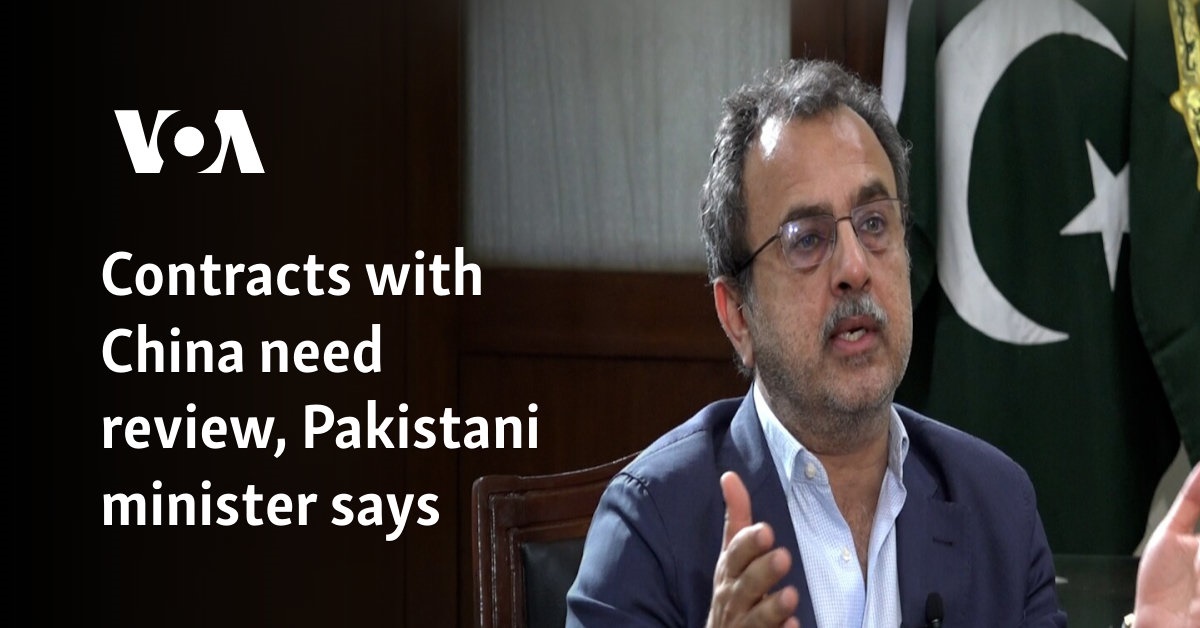Pakistan’s Energy Minister Awais Leghari believes that contracts with Chinese power producers that build and operate power plants in Pakistan need to be revised.
Islamabad owes Chinese power plant operators more than $15 billion. The government is trying to restructure the payments to give itself financial breathing room and secure a much-needed loan from the International Monetary Fund.
“I think they need to reconsider the terms and conditions we already have with the Chinese regarding their IPPs (independent power producers),” Leghari told VOA in an interview this week.
The power projects, mostly built in the last decade, have helped end hours-long blackouts. However, the contracts require Pakistan to pay for the entire generating capacity of each power plant, regardless of how much electricity is consumed. By failing to spur industrial growth that could help harness additional power and reducing transmission losses, Pakistan has huge bills to settle, in addition to repaying project loans, as it has to pay for unused and wasted generating capacity.
Leghari and Finance Minister Muhammad Aurangzeb traveled to Beijing late last month to discuss debt relief for the energy sector.
The trip came days after Islamabad reached a staff-level agreement with the IMF for a three-year, $7 billion lending program. The bank’s board still has to approve the deal.
Leghari said China, like the IMF, wants more comprehensive reforms from Pakistan.
China and the IMF “want to examine the entire economic and energy reform that we have already initiated and started,” Leghari said. “I think the more confidence they have in our economic reform agenda, the better the response will be.”
Leghari heads a working group on energy sector reform, formed after his return from China. Reform efforts to reduce losses in the energy sector include auditing all independent power plants.
The independent power plants being built by Pakistani companies in the country are also subject to similar contractual conditions as the Chinese power plants. Experts say a comprehensive analysis shows that Beijing does not want its companies to be seen as problematic, nor does it want to be the only country to make concessions to Islamabad.
Beijing has not commented publicly on Islamabad’s request to restructure its energy debts, but Pakistani daily Express Tribune reported that it had agreed to convert three Chinese power plants in Pakistan from imported coal to domestic coal.
Pakistan hopes to save hundreds of millions of dollars annually by switching to domestic coal for electricity generation.
The change could come at a high cost. Experts say Chinese investors struggling to collect payments could demand higher insurance premiums and profit margins if they want to expand their mining operations, cutting into Pakistan’s savings.
“It will be a win-win situation for everyone,” Leghari said, dismissing the concerns.
“If that is not the case, people will not invest and lenders will not give money.”
Pakistan will also need infrastructure to transport domestic coal over long distances, and power plants may need to be modified to use Pakistani coal, which is known to be more polluting and less efficient than imported coal.
“There has been an overwhelming response to look at all aspects of coal conversion and reprofiling and to review the technical and financial feasibility studies,” Leghari stressed, while dismissing environmental concerns about the switch to domestic coal.
Leghari played down the possibility of scaring off Chinese investors as Pakistan seeks a review of past deals, saying Islamabad cares about its relationship with investors.
“Whatever happens, with whomever, it will be by mutual consent,” he said.

